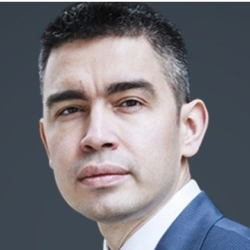Marcel Salikhov, President of the Institute gave an interview to the Institute for Fuel and Energy Complex’s Technologies Development about the prospective development of the world energy and oil market.
In September, oil prices for the first time since April showed a decrease by the end of the month. From levels above $ 45 per barrel of Brent, they rolled back to the range of $ 39- $ 41. At the same time, the market stopped perceiving OPEC / OPEC ++ signals, news about shale oil production in the United States. Even the message about Donald Trump's recovery from the coronavirus was accounted within one day. The Institute for Fuel and Energy Complex’s Technologies Development conducted a survey of experts to find out, how they estimate the oil market in the short and long term.“It seems to me, that decarbonisation is a long-term focus, and many energy companies will gradually take this factor into account in their long-term strategies”, noted Marsel Salikhov, member of the Expert Council of the Institute for Fuel and Energy Complex’s Technologies Development.
- What is your forecast for the barrel price at the end of 2020?
Our baseline scenario at the end of 2020 is $ 45 per barrel for Brent crude. The main current uncertainties are the strength and spread of the second wave of coronavirus, the presidential elections in the United States, certain specific factors of the oil market (introduction of new US sanctions, sustainability of the recovery in Libya, discipline of the OPEC+ deal participants). Any combination of these factors may lead to enough strong decline in prices, however, continuing decline in oil reserves testifies in favor of the optimistic scenario. Production growth in non-OPEC countries, primarily Brazil, Canada and the United States, remains quite modest. Therefore, we believe that in Q4 there will be a slight increase in oil prices.
- Whether do you have the impression that the potential of the OPEC ++ deal is exhausted, the agreements of which are being observed ever worse?
Over time, the discipline of meeting the terms of production cuts gradually decreases - this is a natural process. As oil prices remain at relatively comfortable levels, many participants begin to think that some excess of production over the agreed levels does not pose a particular threat. The problem for the OPEC + deal is that there are no institutional mechanisms for monitoring the implementation of the agreement. The OPEC + Monitoring Committee is trying to formulate an implementation mechanism. It consists in the fact that the participating countries undertake to "compensate" for the excess of the production level over the agreed level in the following months. Thus, the participants undertake to guarantee a certain long-term level of oil supply to the world market, even with possible monthly fluctuations. However, the effectiveness of this mechanism will be obviouse in time.
- Lately, there have been many forecasts about approaching the end of the oil world. BP claims that the consumption peak already was passed in 2019. Total has appointed it for 2030. Which of them is closer to the truth and how is the world ready to abandon oil?
Marcel Salikhov: Indeed, the BP's rather radical forecast is widely discussed. Many large oil and gas companies, especially European ones, have announced that they are planning to change their investment strategies quite dramatically in favor of developing low-carb businesses. American companies are more likely to plan that the international climate agenda can be softened, therefore they are not planning a radical change in strategy. However, for American companies, a lot will depend on who wins the election - Trump or Biden. A victory for Biden, who has set the climate and environmental agenda as his priorities, could mean a rather significant deterioration in conditions for oil and gas companies.
It seems to me, that the focus on decarbonisation is long-term, and many energy companies will gradually take this factor into account in their long-term strategies. Pressure from investors, state and society will also affect. However, this applies to developed countries to a greater extent. There is great potential for oil demand growth in developing countries. Therefore, BP's forecast that demand peaked last year is too radical. In this comparison, the position indicated in the Total’s forecast is closer to me.

Subscribe for updates
and be the first to know about new publications